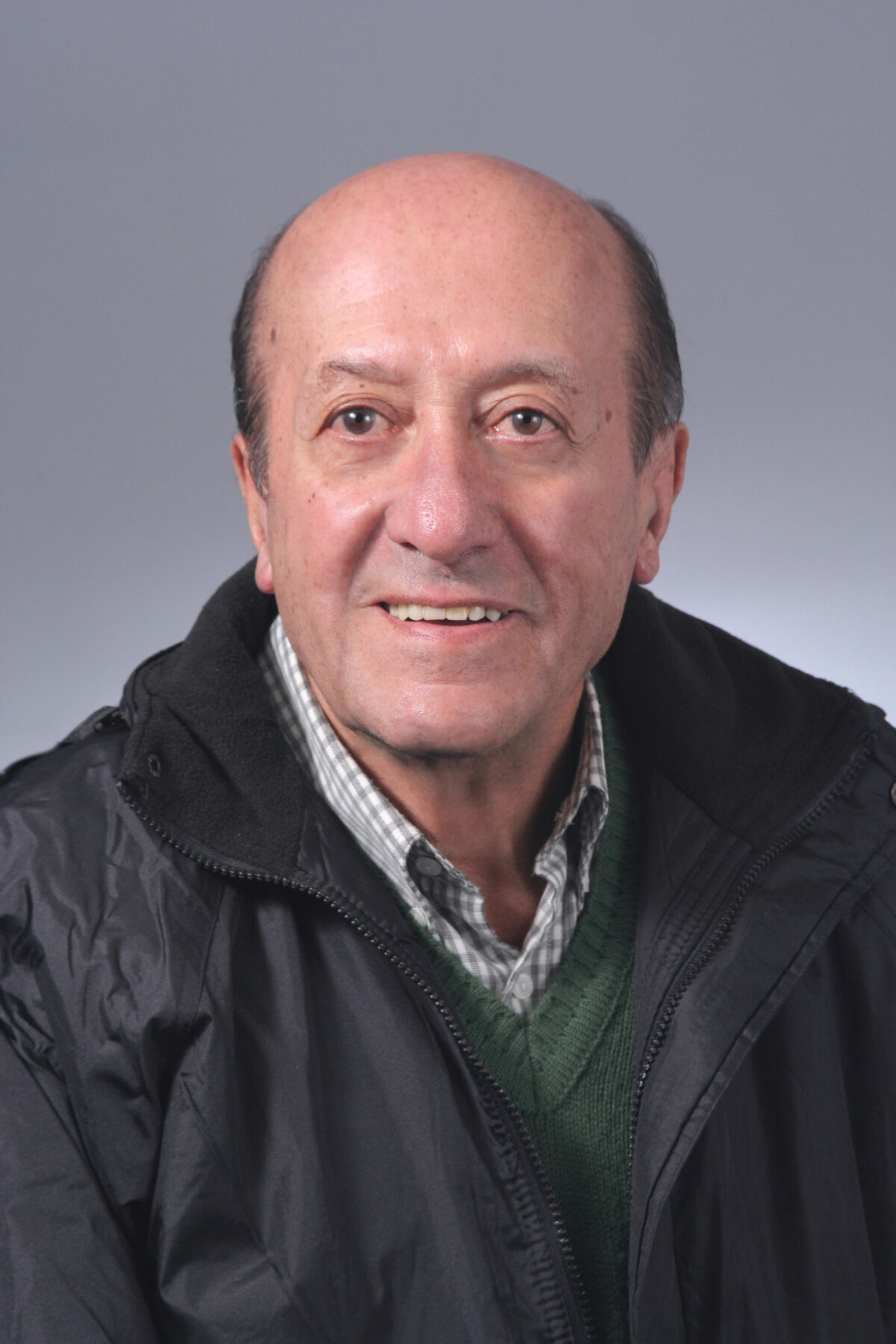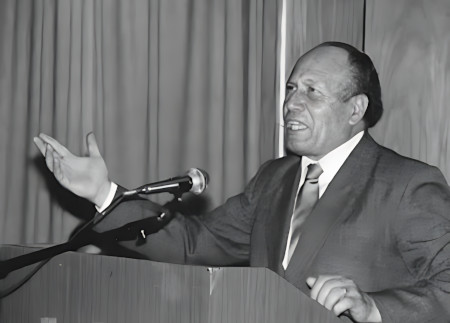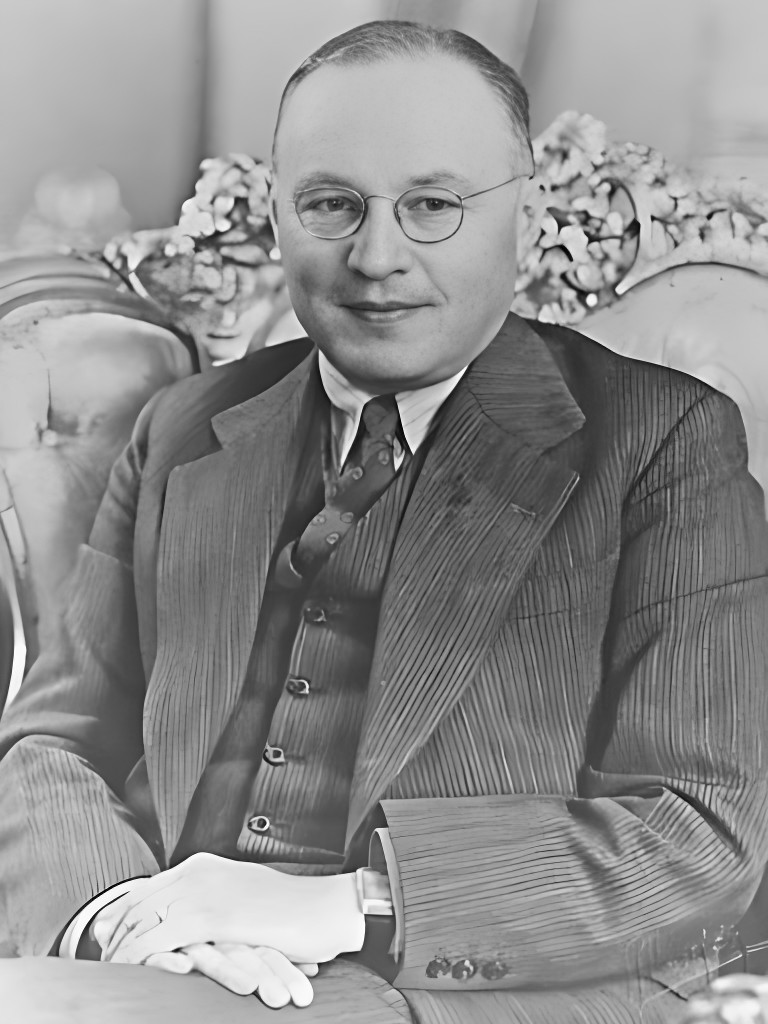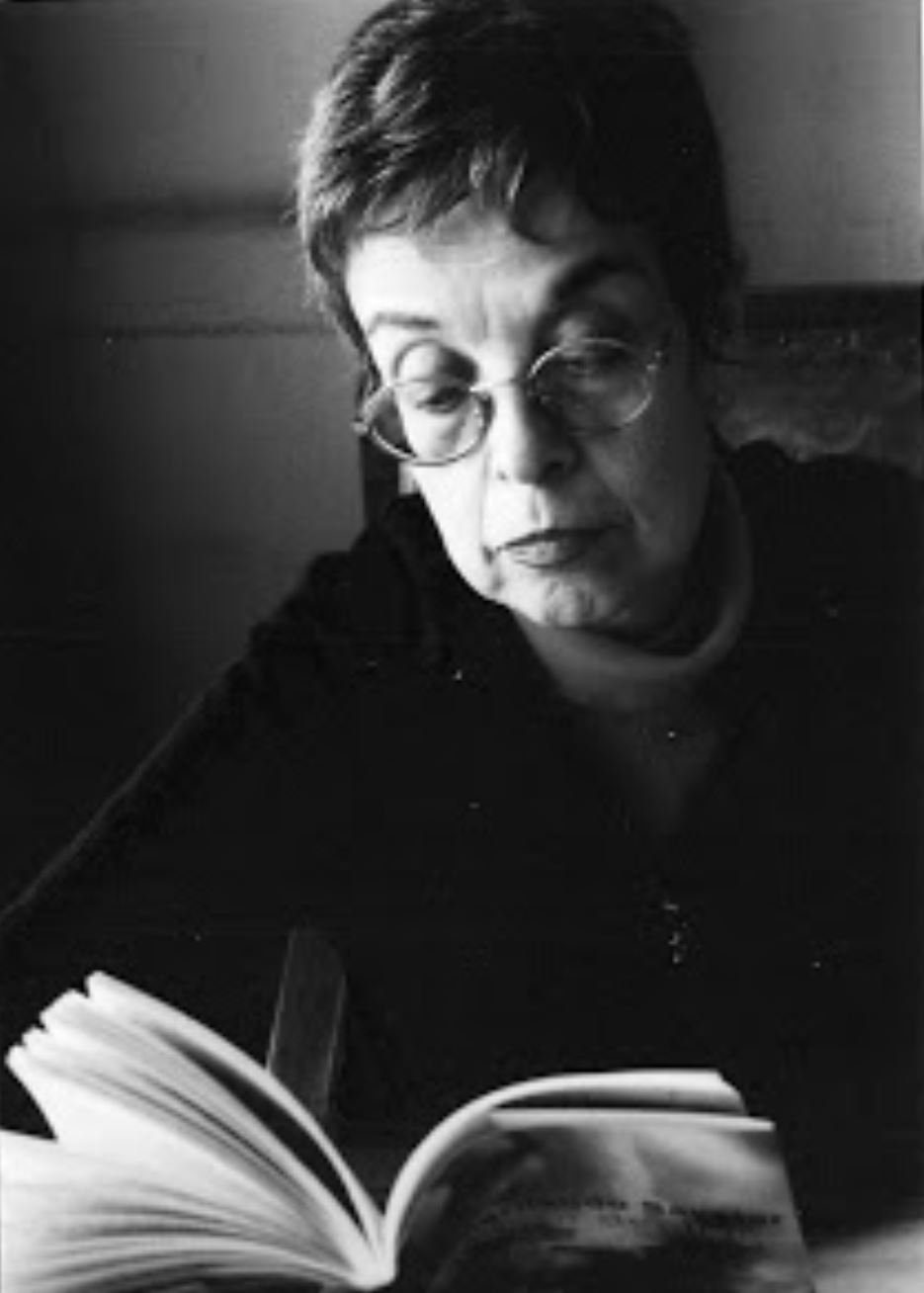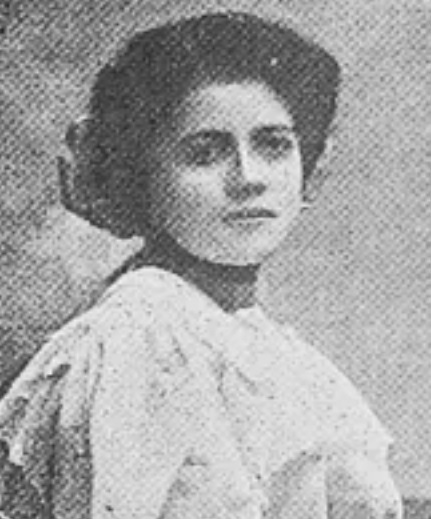Teodoro Vanegas Andrade (Cuenca, December 21, 1926 – 2002) was an Ecuadorian novelist, journalist, editor, and poet who was a member of the Elan Group. He authored 4 poetry books, “Estación del abismo,” “Ubicación del hombre,” “Señales de la Erranza” and “El libro de los avatares” which was published posthumously. Some of his poems have been translated into Russian, Italian, French and English. He was a columnist for El Expreso newspaper, and was the editor of the literary magazines Antorcha and Paz. In 1971, his novel “La noche estevada” received first mention at the novel contest held by the journal El Universo. He was a member of the House of Ecuadorian Culture.
Continue reading “Teodoro Vanegas Andrade”Category: 20th Century Writers
Francisca Ortega Salazar
Francisca Ortega Salazar (1933 – Unknown) was an Ecuadorian poet and children’s literature author. In 1984, she won the Ismael Pérez Pazmiño National Poetry Contest for her poem “Salinas.” Her poetry books include “Poemas para Orfeo” (1978) and “Puente” (1957). She also wrote “Lucecita” (1979), a children’s book.
Continue reading “Francisca Ortega Salazar”Othón Muñoz Alvear
Othón Muñoz Alvear (Guayaquil, Jan 14, 1945 – August 9,2014) was an Ecuadorian poet, columnist, writer, anthologist, theater actor, teacher, and politician. He’s considered the greatest of the “Hurricane Generation,” a group of poets in the 1970s who all contributed to a book of the same name. He authored poetry books and won several prizes and national literary contests. His poem, “Breves noticias de sus vidas breves,” won first prize at the Ismael Pérez Pazmiño National Poetry Contest held by the newspaper El Universo in 1978. He presided over the Guayaquil Municipal Cultural Center and the Association of Educational Journalists. He is perhaps best known for his poems “Mamacity” and “Y te vuelvo a fundar en la esquina de mi barrio,” which pay homage to his native city of Guayaquil.
Continue reading “Othón Muñoz Alvear”Claudio Mena Villamar
Claudio Mena Villamar (Quito, May 28, 1928) is a poet, essayist, journalist, lawyer, and professor. In 1976, he won first prize in the Ismael Pérez Pazmiño poetry contest of the newspaper El Universo for “Las líneas de tus manos” [The Lines of Your Hands]. On February 8, 2007, as he was inducted into the Ecuadorian Academy of Language, he delivered a discourse on the concept of time entitled “Por los túneles del tiempo” [Through the Tunnels of Time], which was released as a book by Editorial El Conejo in Quito, Ecuador, in 2009, and awarded by the Central University of Ecuador. After being appointed pro-secretary of the Academy following the retirement of Filoteo Samaniego in 2006, he was appointed Secretary in 2008 and served until 2013. He is also a member of the Literary Law Society, the House of Ecuadorian Culture’s Academic Section of Literature, the National Academy of History and a founding member of the Ecuadorian Society of Writers “Grupo America.” He was an editorial writer for the newspapers El Tiempo and Hoy, and a columnist for several other publications.
Continue reading “Claudio Mena Villamar”Nicanor de J. Alejandro Reyes
Nicanor de Jesus Alejandro Reyes (Santa Elena, December 24, 1928) is an Ecuadorian poet. In 1967, he took First Prize in the Ismael Pérez Pazmiño Poetry Contest (for “Divagaciones”). In 2005, he published a collection of 33 poems entitled, “Anclas de la ternura,” among which “La guayaquileña bonita” [The Beautiful Guayaquilean Woman] is perhaps his best known poem. He has been a part of the House of Ecuadorian Culture of Guayas.
Continue reading “Nicanor de J. Alejandro Reyes”Ignacio Carvallo Castillo
Ignacio Carvallo Castillo (Guayaquil, January 6, 1937 – Guayaquil, August 28, 2015) was an Ecuadorian writer, poet, and journalist, prominent in the literary generation of the 1960s. A graduate of the University of Guayaquil and the University of Bonn, where he specialized in Pedagogy and History, Carvallo was known for his evocative poetry and literary criticism. He published widely in Ecuador and internationally, and his work earned him numerous accolades, including the Nicolás Copérnico Medal and several national poetry awards. In addition to his literary career, he was a respected educator and cultural advocate, teaching at universities and serving on cultural heritage commissions.
Continue reading “Ignacio Carvallo Castillo”María Antonieta Humeres
María Antonieta Humeres de Doring (Chile) was a Chilean poet known for her deeply introspective and lyrical work. She gained significant recognition in Ecuador after winning the prestigious Ismael Pérez Pazmiño Prize in 1964 for her poetry collection Población de atardeceres (Population of Sunsets). Her poetry, often centered on themes of existential reflection, time, and the feminine experience, was featured in the anthology Poesía ecuatoriana del siglo XX. Although she was Chilean by birth, her literary success in Ecuador led to her frequent association with the Ecuadorian poetry.
Continue reading “María Antonieta Humeres”Waldo Calle Calle
Waldo Calle Calle (Cojitambo, August 25, 1951) is an Ecuadorian poet, essayist, and diabetologist. He has lived in Cuenca for many years where he practices medicine and has worked as a professor at the University of Cuenca. In 1977 he was awarded First Prize in the Ismael Pérez Pazmiño National Poetry Contest for his poem Juantodonada. His poetry books include: “Los días del antihombre” [The Days of the Anti-Man] (1978) and “Antologia de los perros” [Anthology of the Dogs] (2003). His poems and stories have also been included in several locally published anthologies in Cuenca.
Continue reading “Waldo Calle Calle”Manuel Zabala Ruiz
Manuel Zabala Ruiz (Riobamba, 1928) is an Ecuadorian poet and university professor. He was a member of the “Caminos” group. He won several Ecuadorian national prizes, including First Prize of the Ismael Pérez Pazmiño Poetry Contest for Los cuadernos del salmista. His published poetry books include: La risa encadenada (1964), Teoría de lo simple (1970), Rumbo al otoño (1986), Obra poética completa (1998) and Poesía junta (2006).
Continue reading “Manuel Zabala Ruiz”Julio Tobar Donoso
Julio Tobar Donoso (Quito, January 25, 1894 – Ibidem, March 10, 1981) was an Ecuadorian diplomat, lawyer, writer, and social and political scientist. In 1942, during the presidential term of Carlos Arroyo del Río (1940-1944), Julio Tobar was a signatory of the Protocol of Rio de Janeiro, a treaty settling possession of the disputed Oriente region on the border of Peru and Ecuador. He also served as Minister of Foreign Affairs of Ecuador from 1938-1942. Along with Father Aurelio Espinosa Pólit, Tobar founded the Pontifical Catholic University of Ecuador. He was a member of the Ecuadorian Academy of Language.
Continue reading “Julio Tobar Donoso”Gonzalo Ramón
Gonzalo Ramón (Guayaquil, 1912 – Unknown) was an Ecuadorian novelist, poet, essayist, and literary critic. He is best known for his novels Tierra baldía (1957, Barren Land), which exposed the exploitation of Afro-Ecuadorians in banana plantations, Clavellina (1971, Little Carnation), which won a prize from the National Union of Journalists, and Guandal (1976, Swampland), which earned the National Literature Award. Ramón also wrote literary criticism, most notably on the Ecuadorian poet César Dávila Andrade, and his long poem Elegía de la creación, carta a mi hija (1965, Elegy of Creation, Letter to My Daughter) presents an ambitious exploration of the origins and evolution of life.
Continue reading “Gonzalo Ramón”Victoria Tobar
Victoria Tobar Fierro (Ambato, 1943) is an Ecuadorian poet, writer, and literary critic. In 1983 her first poetry book, “Y de repente” was bestowed the “Juan León Mera” award by the municipality of Ambato. She has written 5 poetry books and her poems have been selected for inclusion in various anthologies of Ecuadorian and Latin American poetry. In 2020 a compilation of her poems was published in a book entitled “Inmensos sentidos” by the publisher El ángel editor.
Continue reading “Victoria Tobar”Aida Borja Álvarez
Aida Borja Álvarez was an Ecuadorian historian and poet. In 1959, she released a remarkable collection of poetry titled “Nautilo.” Alongside her poetic endeavors, Aida also delved into nonfiction, producing compelling works such as “El Capitán de los Andes” (1960), a comprehensive two-volume biography chronicling the life of Simon Bolivar. Additionally, she authored “Grecia” (1960), an insightful exploration of Greece’s majestic mountains, its gods, and the people that inhabit its land. Aida’s literary repertoire extended further with “Mi visión del archipiélago” (1963), a captivating book that offered her unique perspective on the enchanting Galápagos Islands.
Continue reading “Aida Borja Álvarez”Laura Pérez de Oleas Zambrano
Laura Pérez de Oleas Zambrano, pseudonym Doña Manuelita (Quito, circa 1904-14 — circa 1981) was an Ecuadorian writer. She authored a novel, a collection of stories, two radio dramas, and an unpublished collection of poems. One of her significant works, published in 1959, is the novel “Sangre en las manos” (Blood on the Hands), which grapples with the moral complexities of abortion. This compelling narrative draws inspiration from a real-life incident, the trial of an obstetrician in Quito during 1938, charged with the death of a patient during a clandestine abortion. Her other notable work is a two-volume collection of stories entitled, “Historias, leyendas y tradiciones ecuatorianas” [Ecuadorian Stories, Leyends and Traditions] (1962).
* Because there does not appear to be agreement on the exact date of Laura Pérez’s birth or death, we have chosen to approximate the dates based on data from various sources, hence why circa is used above.
Continue reading “Laura Pérez de Oleas Zambrano”María Natalia Vaca
María Natalia Vaca Santander (Ambato, May 5, 1878 – January, 1955) was an Ecuadorian teacher, writer, and poet. She taught reading, writing, and literature in the city of Ambato. Her poetry was published in newspapers and magazines such as La Mujer (created by Zoila Ugarte) and La Ilustración Ecuatoriana. In the magazine La Mujer she also published her short novel “¡Pobre María!” and the short stories “Viaje en diligencia” and “Cuento de Navidad.” In 1907, she was appointed Secretary of the National Library by President Eloy Alfaro. There are two streets named after her in Ecuador. One is in Quito’s Metropolitan District, and the other is in the city of Ambato. A school in Ambato, founded in 1974, bears her name: “Instituto Superior Tecnológico María Natalia Vaca.”
Continue reading “María Natalia Vaca”
